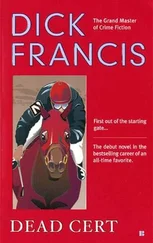For more than an hour, they worked in the glass-fronted boxes while Carl and I set to work in the tiny kitchen across the passageway preparing the pies for the oven. Carl rolled out the pastry while I filled and covered the individual pie dishes. Our Cambridge greengrocer had successfully replaced the asparagus and the new potatoes, both of which were held captive in the restaurant’s cold-room. The potatoes now sat ready in saucepans on the stove, and I began to relax. But tiredness creeps up on those who relax.
I left Carl to finish the pies while I went to check on the others.
They had successfully retracted the divider wall between the two boxes, making a single room about twenty feet square. Four five-foot-diameter tables and forty gold ladder-back chairs had been waiting for us in the boxes, delivered by a rental company contacted by the racetrack, and they had been arranged to allow for easy access around them for serving.
I had originally planned for five staff, other than me and Carl, to work the event, one waiter for each pair of tables, two to provide the drink and wine service and one to help out in the kitchen, but the other three had failed to show. The idea was for one waiter to provide drinks or coffee to the guests as they arrived while the other helped with steaming the asparagus and heating the rolls. In the end, the rolls had been caught by the padlocks, so we had bought some French loaves at the local supermarket in their place. If MaryLou objected to this continental influence, that was too bad.
Only half my dining-room manpower had actually turned up, so they, and I, were still busy setting up the tables when the first of the lunch guests was due to arrive. We had nearly made it, with only the wineglasses on a couple of the tables still to be put out.
MaryLou had just stood back and watched us as we worked.
We had laid starched white tablecloths over the stained and chipped plywood tables, and it had instantly improved the look of the room. I liked using Stress-Free Catering, since their equipment was of a higher quality than other catering services. Kings-pattern cutlery and decent water glasses and wineglasses soon transformed the bare tables into settings fit maybe not for a king but certainly fit for tractor and harvester manufacturers from across the pond.
Carl had even managed to rescue the pink-and-white carnation table centerpieces from the cold-room before it was sealed, and they, together with the alternating pink and white napkins, gave the final touch to the room.
I stood back and admired our handiwork. I was sure the guests would be impressed. Even MaryLou seemed to be pleased. She smiled. “Just in time,” she said as she placed seating name cards around the tables.
I looked at my watch. Twenty-five to twelve. Only the daylight outside told me it was a.m. and not p.m. My body clock had stopped hours ago and needed rewinding with a decent sleep before it would start again.
“No problem,” I said.
I felt clammy all over and longed to put my head down on a nice feather pillow. Instead, I retreated to the kitchen and doused my aching crown under cold water at the sink. I hoped that Angela Milne couldn’t see me through the window. The Food Standards Agency wouldn’t approve of a chef wetting his hair under the kitchen tap. I emerged slightly more refreshed, but, overall, it wasn’t a great improvement. I yawned loudly, with my mouth wide-open, leaned on the sink and looked out across the parade ring towards the town center.
Newmarket on 2,000 Guineas day. The town was abuzz with excitement for the first Classic race of the year, with every hotel room for miles occupied with the hopeful and the expectant.
Newmarket was nicknamed “Headquarters” by racing people, although it had long since relinquished its role as the official power base of the Sport of Kings. The Jockey Club headquarters had been established at Newmarket in the 1750s to regulate the already-thriving local racing scene, and it had soon expanded its authority over all Thoroughbred racing in the land. Indeed, the Jockey Club had wielded such power that in October 1791 the Prince Regent, the future King George IV, was investigated for “irregularities in the running of his horse Escape.” The irregularities in question were that the horse pulled up on one day at short odds only to win the next day at long. The prince sold his horses and his stud and never returned to Newmarket, and it is much rumored that he was, in fact, privately “warned off” by the stewards, although officially he was just “censured.”
Nowadays, the Jockey Club was still a huge influence in Newmarket itself as it owned not only the two racetracks, but also some twenty-four hundred acres of training paddocks around the town. But the role it once had in running and controlling British racing has faded away to almost nothing with the establishment first of the British Horseracing Board and then, more recently, the creation of the British Horseracing Authority, which has taken over the inquiries and disciplinary matters within the sport. The Jockey Club has returned to what it was at its original meetings in a London tavern, a social gathering for like-minded individuals who enjoy their racing. That is, of course, unless they happened to be a professional jockey. There are no actual jockeys in the Jockey Club. In the eyes of the members, jockeys are servants and have no place socializing among their betters.
Carl roused me from my daydreaming.
“We can only get half the pies in these ovens,” he said, “so we’re borrowing the space in the ovens down the passage. They’re serving a cold buffet, so there’s plenty of room.”
“Great,” I said. I was so tired I hadn’t even realized there was a problem. “What time do they go in?” I tried hard to do the mental arithmetic. First race at five past two, so sit down to lunch at half past twelve. Each pie takes thirty-five minutes. If there are forty pies, minus the five people who aren’t coming, that makes…forty minus five pies…if one pie takes thirty-five minutes for the filling to cook and the pastry to go golden brown, how long does it take forty minus five pies…? The cogs in my brain turned ever so slowly and then ground to a halt. If five men can build five houses in five months, how long will it take six men to build six houses? Did I care? I was beginning to think that the pies should have gone into the ovens the day before yesterday, when Carl saved me.
“Twelve-fifteen sharp,” he said. “Sit-down time is twelve-thirty, pies on the table at one o’clock.”
“Great,” I said again. And my head on the pillow by one-thirty. Fat chance.
“And potatoes on in five minutes,” Carl said. “All under control.”
I looked at my watch. It took me quite a time to register where the hands were pointing. Ten to twelve. What is wrong with me? I thought. I’d stayed awake for longer than this before. My stomach rumbled to remind me that nothing had been put in it for a while. I wasn’t sure that it was such a good idea to eat at all, in case it came up again in a replay of the night before, and I wasn’t at all keen on that. But perhaps hunger was contributing to my lethargy.
I tried a dry piece of French bread. It seemed to provoke no immediate reaction from my guts, so I had another, larger piece. The rumblings abated.
The guests would be arriving in the boxes and I was hardly dressed to greet them, so I went down to my Golf, stood between the cars and changed into my work clothes, a pair of black-and-white, large-check trousers and a starched white cotton smock. The top had been loosely modeled on a hussar’s tunic, with two rows of buttons in a sort of open V down the front. MAX MORETON was embroidered in red on the left breast, below a representation of a Michelin star. I had discovered that to look like a chef was half the battle in convincing customers and critics alike that I really did care about the food they ate and that I wasn’t simply trying to fleece them.
Читать дальше












